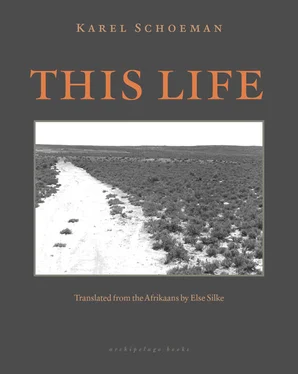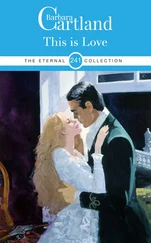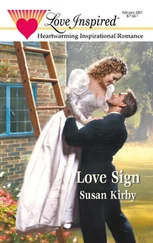Now I remember everything I had forgotten, including many things I have no desire to recall. A herdsman had come to complain to Father that Coenraad had thrashed his child, the man standing outside in the yard, while Father came to the kitchen doorway, leaning on his stick, Mother behind him as usual, just inside the door. Where could Coenraad have been that I do not remember him? But there was no need for Coenraad to worry about the labourers’ complaints and tales, after all, for Mother always supported and defended him. In the end the man had no choice but to leave and look for other work: “It is not right!” he cried. “It is not good!” What had happened, exactly? I do not know, but once he got going, Coenraad beat the labourers mercilessly, and he spared neither woman nor child, that I remember well. “We are also human!” he shouted over his shoulder as he crossed the yard, and the woman’s voice — yes, his wife had come with him, with the child who had been punished for some transgression or omission: “It is not good when a woman is the boss on a farm!” That was how it happened; that is what I remember. But, right or wrong, the man had to leave with his family and I suppose we found other workers yet again. It is not right — good or bad — how well I recall those words now. And the beams that have collapsed at Bastersfontein where the house stood empty, the thatch collapsed over the walls, and the fountain dried up.
It was during this time, when Coenraad was still with us, that I went to Bastersfontein, when the houses there stood empty because we could not find labourers, and when Maans was still at home; Maans was young and did not understand, laughing beside me as the wind plucked at my clothes, and my billowing hair blinded me momentarily; it was during this time, when the child was my sole companion during the day, and in the evenings when he was asleep, I withdrew to join old Dulsie at the hearth as she smoked and muttered to herself, increasingly unaware of my presence or of events around her. She had grown old and was probably tolerated in the house only through Father’s intervention, for there was little she could still do and she lived mostly inside her own head, always talking about the past. Could this have been why I went to the kitchen in the evenings, sitting silently in a dark corner of the hearth, because it was the only place where I could hope to hear Pieter and Sofie’s names? But if she knew anything, she never let on to me, cautious even in her withered old age, and the things she remembered and the long, rambling conversations she had with herself were seldom about subjects that interested me, except that one evening in late autumn shortly before we went down to the Karoo: a cold evening, with Dulsie muttering and mumbling, drawing at her pipe and shoving another branch into the fire. Perhaps Mother and Father were already asleep, for Father went to bed early, and I was lingering at the fire in the only moments of freedom I knew. One of the first cold evenings of frost or sudden snow in the Roggeveld when preparations for the trek had already begun, the fire dwindling in the hearth, and Dulsie talking to herself about Jakob and Gert once getting into an argument about a bay horse, and about a saddle and bridle that had belonged to someone or had been taken from him. I could not follow and was no longer listening when suddenly, as if woken from a dream, I was alerted by the sound of familiar names. “And Gert and that arrogant Malay meid stealing food here in the house, thinking I cannot see them, or hear them whispering here in the dark, and Gert riding over to Bastersfontein every night when Jakob and Sofie were hiding out there …”
In the dark corner I sat motionless: Jakob and Sofie, Jacomyn and Gert — what was she talking about? Something stirred, something rustled in the shadows beyond the last glow of the fire burning low in the hearth. Old Dulsie had forgotten what she was talking about, however, and said no more, and I dared not ask in case she spoke again. Something stirred in the dark; but it was nothing, only the wind driving the fine, sifting snow through the gap underneath the door. Then Dulsie laughed triumphantly. “And Gert lying so shamelessly and making the Oubaas ride all the way to the Boland to look for them, Gert with his smooth tongue who took Jakob’s saddle and bridle for himself when he left …” Her thoughts travelled far; she drew on her pipe thoughtfully, suddenly cackling loudly. “Oh, how he fooled them,” she crowed, rocking gleefully at the memory. “All the way to the Boland with Jakob’s saddle and bridle, and the two of them sitting at Bastersfontein all the while, Jakob and Sofie, while Gert rides around with his saddle. Oh, how he fooled them, good, good!” she cried, rocking from side to side. I did not move, I did not breathe, too afraid to miss a word or to misunderstand, but the confused memories faded and the old woman dozed on her seat in front of the fire: I was rising cautiously to go to my room when she spoke again. “Back from the Boland empty-handed,” she mumbled contentedly, and then she fell asleep and I covered the last glowing embers with ashes and went to bed myself.
I suppose I could have asked, there is no harm in asking, but I had learned long ago that you get no answers to your questions, and in her lucid moments Dulsie would never have discussed these things with me. I never discovered what train of thought had suddenly sparked off those comments that evening, and she never referred to anything like that again, no matter how carefully I listened to her musings: thus I had to be satisfied with the scant information I had come upon so inadvertently. Jakob and Sofie at Bastersfontein? — no, that could not be right. But Pieter and Sofie; and Gert riding over to Bastersfontein at night with food Jacomyn had stolen from the house, Gert who finally left us to seek his fortune elsewhere, with his horse and his rifle and the saddle and bridle belonging to the late Jakob who had been found dead in the kloof, Gert and Jacomyn … What had actually been behind Dulsie’s gloating words, and whose side was she on: did she blame Gert for the way he had deceived Father, or revel in the success of his deceit? But she was on no one’s side, dependent like all of us on the goodwill of any random person who could aid or protect her, equally inclined to disparage and insult her fellow-servants as to delight in the ruin of her masters, her loyalties permanently divided by the need for survival. Alone, I realised as I bent over the hearth to extinguish the fire and felt my way to my room through the dark house; alone, man turned against man in selfishness, discord and spite.
In all the years Bastersfontein had been no more than a name to me, an isolated place where Jan Baster and his people once lived and, in later years, our herdsmen and their families, and I had never been there myself; yet it was on our land, at the farthest limit of our farm, and there was no reason why I should not go there if I wished. I would have to wait, however, until spring when we returned from the Karoo: wait, I told myself while I helped Mother pack the crates and tie up the bundles for the trek downward; wait, I said as our trek began the descent down Vloksberg across the rocky ridges, and I looked back at the faded grey winter landscape of the plateau we were leaving behind, looked back at the clouds covering the distant horizon where I knew Bastersfontein lay; wait, I repeated during the months of our stay in the Karoo, and I yearned for the Roggeveld more strongly than ever.
Why was it so important for me to go to Bastersfontein, and what did I expect to find there? I did not know that myself, and today I still do not know, only that the names that had emerged so suddenly from old Dulsie’s incoherent mutterings in that time of silence and loss were to me the first firm evidence I could cling to, and the only promise that I might somehow discover what had happened to Pieter and Sofie. Wait, I said, and I did not mind waiting, for to be patient was another thing I had already begun to learn.
Читать дальше












